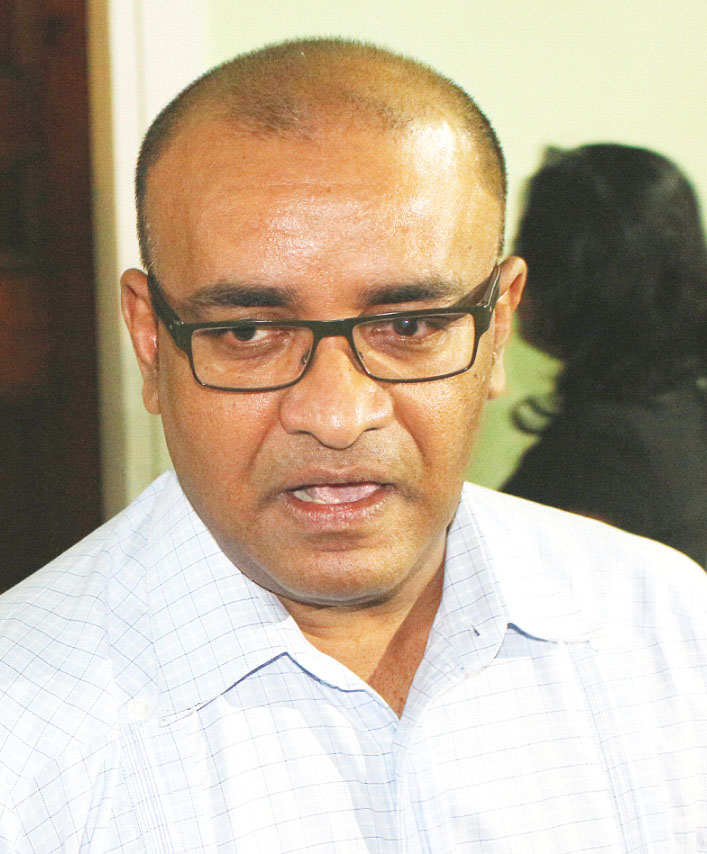Opposition leader Bharrat Jagdeo yesterday voiced disapproval of military manoeuvres being undertaken by the Guyana Defence Force (GDF) in response to Venezuela’s troop build-up near this country’s western border and he stressed the need for President David Granger and the President of Venezuela Nicolas Maduro to hold bilateral talks.
“Dialogue is the only way forward. There is no room for belligerence or pugnacious or arrogant foreign policy,” the former president told a news conference at Freedom House yesterday.
Jagdeo said not only has the opposition People’s Progressive Party (PPP) not yet been briefed on the issue by the Granger administration but moves towards the setting up of a parliamentary committee on border matters have not yet started.
Nonetheless, he reiterated his party’s commitment to government on border issues. “I say again, the government has our full support on border-related matters,” he added.
Jagdeo, however, cautioned yesterday that Guyana’s military manoeuvres can send the wrong signals. “One thing we must not do, though, we must never allow Venezuela to argue that we are a belligerent nation by the signals that we send,” he said.
“While we have to be ready and we all have to, collectively, defend our country, from whatever external threat we face, if we start sending images across the world of troops carrying guns then we undermine the strength of small countries, which is diplomacy and multilateralism and not going to war,” he added.
Jagdeo also said it was important for Granger and Maduro to hold talks to help ease tensions and restore trade, especially Guyana’s sale of rice and paddy to Venezuela, and functional cooperation.
Both Granger and Maduro have indicated their willingness to engage at a meeting being arranged by UN Secretary-General Ban Ki-moon in New York, where the UN General Assembly is meeting.
Jagdeo pointed out that Guyana stands to lose over $130M a year if its rice trade with Venezuela is ended. He maintained that border matters should not be carried over to the country’s trade relations and suggested that Guyana was the cause of Caracas’ decision to discontinue buying rice.
“You cannot move a border issue to economic sanctions. We threw the first stone of economic sanctions when we caused the airline to go back claiming that they had not put up the bond of US$200,000. And that bond… we had put in place for charted flights and not scheduled carriers, so that was the first stone,” he stated.
In June, Guyana prohibited the Venezuelan state-owned airline Conviasa from flying here as it had failed to lodge the required bond with aviation authorities. Minister of Public Infrastructure, David Patterson, who has responsibility for transport, said the airline never lodged a bond as required and had owed the CJIA and the Guyana Civil Aviation Authority money.
“Secondly, it is when the language between the two sides started getting a bit more tense and what they interpreted from our side was hubris,” Jagdeo added.
He also urged government to zealously solicit support from world leaders and organisations like the Commonwealth on the border controversy. “Our government needs to reach out back to those people because they have experienced the solidarity at the highest level and that is at the Commonwealth… it is important,” he opined.





